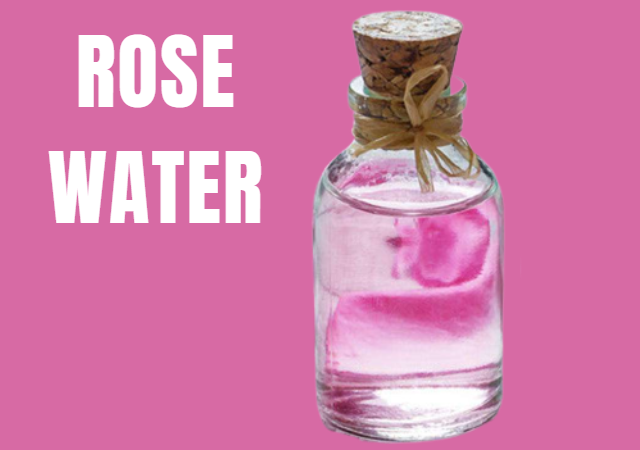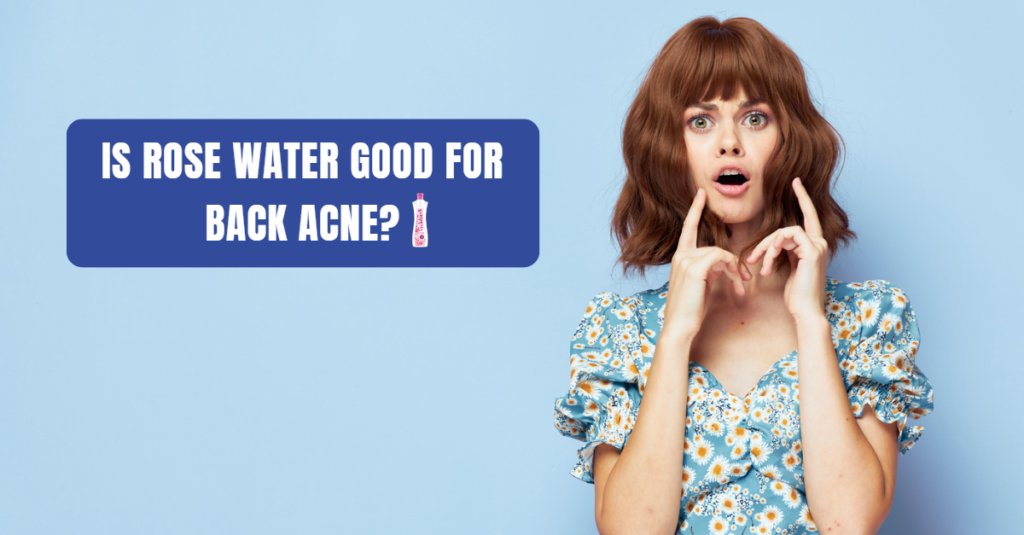Is Rose Water Good for Back Acne?
Introduction
Back acne can be a bothersome and confidence-denting skin condition that many people struggle with. When searching for potential remedies, natural options often come to mind. Among them, rose water has emerged as a popular choice. Derived from the petals of roses, rose water has been valued for its skincare benefits for centuries. But does it hold the potential to effectively address back acne?
In this article, we will explore the efficacy of rose water as a remedy for back acne. We will delve into the causes and impact of back acne, and then examine the properties of rose water that make it a promising solution. From its anti-inflammatory and antibacterial effects to its moisturizing and pH-balancing properties, rose water offers several potential benefits. We will also discuss the best practices for using rose water to combat back acne effectively. By the end, you will have a clearer understanding of whether rose water is a suitable option for your back acne concerns.
-
Understanding Back Acne:
Before delving into the potential benefits of rose water, it is crucial to grasp the nature of back acne. Back acne is characterized by the presence of pimples, blackheads, and whiteheads on the back. It can be caused by factors such as hormonal fluctuations, excess sebum production, clogged pores, and bacterial growth. Back acne not only poses physical discomfort but can also impact an individual’s self-esteem and quality of life.
-
What is Rose Water?

Rose water is a floral water obtained through the distillation of rose petals. It has a long history of use in skincare and beauty rituals, dating back to ancient times. Rose water is renowned for its delicate fragrance, but it also offers numerous therapeutic properties that can benefit the skin. Its composition includes essential oils, vitamins, minerals, and antioxidants, making it a potentially valuable ingredient for addressing various skin concerns.
-
The Benefits of Rose Water for Back Acne:
- Anti-inflammatory properties: Rose water contains anti-inflammatory compounds that can help reduce redness and inflammation associated with back acne. It may calm irritated skin and promote a more even complexion.
- Antibacterial and antiseptic effects: The natural antibacterial properties of rose water can help combat the growth of acne-causing bacteria. By reducing bacterial colonization on the skin, rose water may aid in preventing further breakouts.
- Moisturizing and soothing capabilities: Rose water acts as a mild natural moisturizer, providing hydration to the skin without clogging pores. This can be beneficial for individuals with back acne, as it helps maintain a balanced moisture level and soothes dryness or irritation.
- pH-balancing properties: Rose water has a slightly acidic pH, which is similar to the natural pH of the skin. By maintaining the skin’s optimal pH balance, rose water may support a healthier skin barrier and minimize the risk of acne flare-ups.
-
How to Use Rose Water for Back Acne:
To effectively utilize rose water for back acne, it is essential to follow a proper skincare routine. Here are some guidelines:
- Choosing the right rose water product: Look for high-quality, organic rose water without additives or artificial fragrances. It is preferable to opt for pure rose water or formulations with minimal ingredients.
- Preparing the skin for application: Cleanse your back with a gentle, non-comedogenic cleanser to remove dirt, oil, and impurities. Pat the skin dry before applying rose water.
- Application methods and techniques: There are several ways to apply rose water to the back. You can use a cotton pad or ball soaked in rose water and gently swipe it across the affected areas. Alternatively, you can transfer rose water to a spray bottle and mist it onto the back.
- Frequency and duration of use: Start by using rose water once a day and observe how your skin responds. Gradually increase the frequency if your skin tolerates it well. However, it is essential to avoid excessive use, as it may lead to skin dryness or irritation.
-
Other Complementary Skincare Tips for Back Acne:
While rose water can be a beneficial addition to your skincare routine, it is essential to adopt a comprehensive approach to manage back acne. Consider implementing the following practices:
- Proper hygiene and cleansing routines: Shower daily, especially after sweating, to remove excess oil, sweat, and bacteria from your back. Use a gentle cleanser formulated for acne-prone skin and avoid aggressive scrubbing.
- Exfoliation techniques: Regular exfoliation can help remove dead skin cells and unclog pores. However, be cautious not to over-exfoliate, as it may irritate the skin. Choose gentle exfoliants and limit exfoliation to once or twice a week.
- Choosing suitable fabrics and clothing: Opt for breathable fabrics, such as cotton, to allow proper airflow and minimize friction on the back. Avoid tight-fitting clothing that can trap sweat and bacteria against the skin.
- Diet and lifestyle considerations: Maintain a healthy diet rich in fruits, vegetables, whole grains, and lean proteins. Avoid excessive consumption of processed foods, sugary snacks, and dairy products, as they may exacerbate acne. Additionally, manage stress levels, as stress can potentially contribute to acne flare-ups.
-
Potential Side Effects and Precautions:
While rose water is generally safe for most individuals, it is essential to be aware of potential side effects and take necessary precautions:
- Allergies and sensitivities to rose water: Some individuals may be allergic or sensitive to rose water. It is advisable to perform a patch test before applying rose water to the entire back. If any signs of irritation or allergic reactions occur, discontinue use immediately.
- Patch testing and gradual introduction: Introduce rose water gradually into your skincare routine to assess your skin’s response. Apply a small amount on a small area of the back and observe for any adverse reactions.
- Consulting a dermatologist for severe acne cases: If you have severe back acne that does not respond to home remedies or worsens over time, it is recommended to seek professional advice from a dermatologist. They can provide personalized recommendations and prescribe appropriate treatments if necessary.
Conclusion
While rose water has been praised for its potential skincare benefits, its effectiveness in treating back acne may vary among individuals. It is important to remember that everyone’s skin is unique, and what works for one person may not work for another. Incorporating rose water into a comprehensive skincare routine, alongside other acne-fighting practices, may help improve back acne symptoms. However, if back acne persists or worsens, consulting a dermatologist is advisable for a tailored treatment plan. Ultimately, the journey to clear and healthy skin involves patience, consistency, and finding the right approach that works best for you.

My name is Rohit Vagh and I’m a content writer specializing in fashion and lifestyle. I have three years of experience in this field and have written various articles. My writing style is creative and engaging, and I strive to create content that resonates with my readers. I have a deep passion for fashion and am constantly researching the latest trends and styles to make sure my readers are up to date. I’m excited to continue my career in blogging, and I’m always looking for new opportunities in the fashion and lifestyle space.





